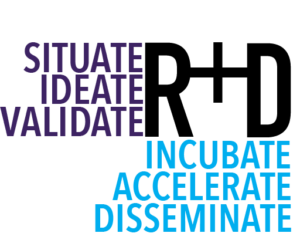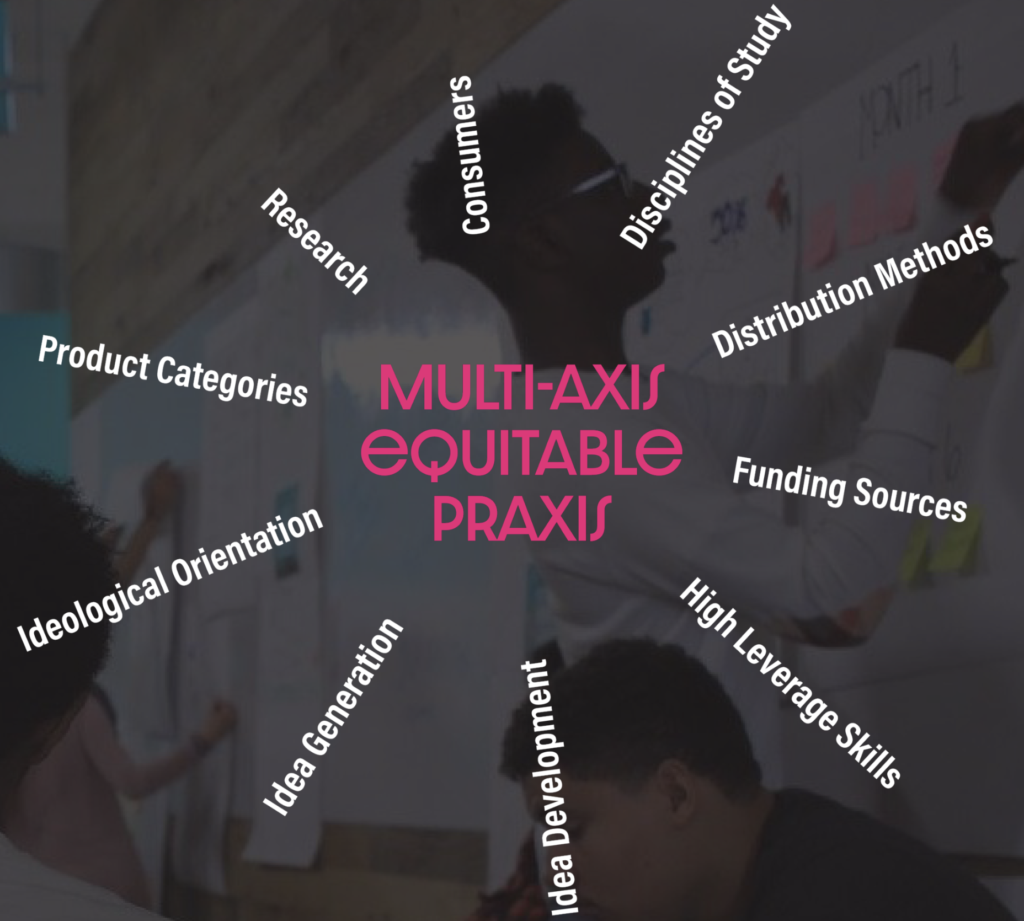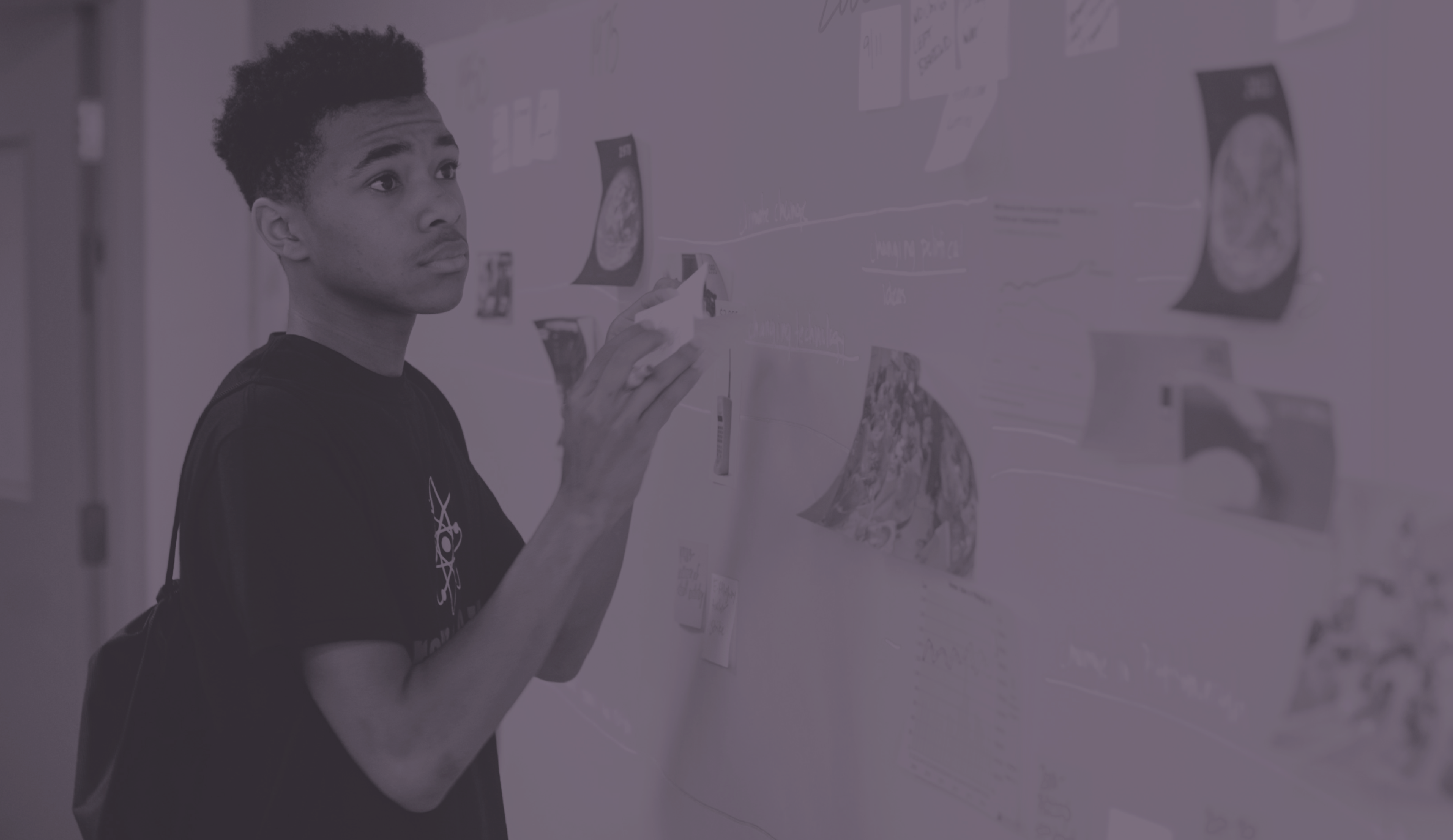EcoSystemic Design + Deliberate Development + Equitable Praxis
Over the last year, the eXi Lab has worked to bring Emancipatory R+D from ideation to implementation. Combining the work of four of our prior trialing programs (Teachers Leading Change, Youth Leading Change, Education Uncontained, and Girlhood Rising), we took what we knew and combined it with the help of an amazing advisory panel to create Emancipatory R+D.
ERD covers all phases, with special attention to the power that happens when we co-design, co-develop, and co-implement.
Emancipatory R+D (ERD) is a liberatory model for creating educational technology that advances the intellectual, social, emotional, and political empowerment of students, educators, and the larger community. Liberation, according to Friere (1968) requires a dialogic process and is rooted in interrogating oppression and the roots of white supremacy.
Liberation is the process of equipping the oppressed with the tools and freedom to transform the very structures that have marginalized them (Friere, 1968). This praxis removes prescribed ways of knowing and allows for the humanization of all people. It allows for reflection and anti-oppressive action – the creation of avenues for communities to empower themselves and disrupt hegemony (Khalifa et al., 2016). Traditional R & D has determined whose epistemologies count and it often excludes the knowledge of historically marginalized people. Using the cultural experiences, histories, and knowledge of historically marginalized people as the foundation for culturally relevant innovations, ERD provides a structured process that centers this knowledge as a critical aspect of the infrastructure that produces and validates leading edge educational technology

Ecosystemic design walks team through the co-design process – ensuring that the subjugated knowledge of vulnerable populations is centered. Occurring across two phases, this ecosystemic process produces the conditions for scalable impact that centers the needs of community-centered and community-derived products.
Deliberate Development
There is no proverbial “table” to be invited to in this model. Building a strong strategy and structure prior to co-design and co-development is critical for equity. Through these processes, teams focus on their competency in and their capacity for equitable praxis.
Multi-axis equitable praxis (MAEP) requires that teams investigate how they can improve across multiple domains of R+D. Instead of simply changing one element, MAEP provides 10 domains for avenues to potential change that teams can consider as they investigate how to make equity a required outcome of their work. As they investigate the role of cultural relevance and how it intersects with each R+D domain, MAEP provides pathways for equity in all corners of the research and development process.
Represented as a sunburst, MAEP is built upon an embedded taxonomy of elements that teams can use to deliberately shift power* to more culturally relevant methods and processes.
A great example of this is the Shifting Power Initiative at Remake Learning.




